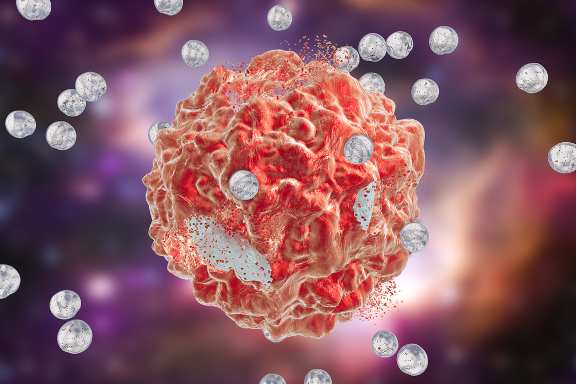New nanotech has more efficient detection of cancer and disease

Image Courtesy of drugdiscoverytrends.com
March 31, 2021
Researchers at the University of Central Florida are working to develop a new screening technique that will make cancer and other disease screenings 300 times more effective at detection.
The process of this detection is done through enzyme-linked immunosorbent assay (ELISA). ELISA is a test that measures samples for biochemicals like antibodies and proteins that indicate the presence of cancer, HIV, pregnancy, etc.
The newly developing technique uses nanoparticles that will increase the sensitivity of ELISA, igniting more presence of the biomarker associated with the associated disease. Nanoparticles “mimic” the enzyme used in ELISA tests, enhancing the impact on the indication of disease.
“Such a breakthrough enables highly sensitive detection of cancer biomarkers with the ultimate goal of saving lives through earlier detection of cancers,” says Xiaohu Xia, an assistant professor in UCF’s Department of Chemistry and study co-author.
Xia says the next steps for the research are to continue to refine the technology and apply it to clinical samples of human patients to study its performance.
“We hope the technology can be eventually used in clinical diagnostic laboratories in the near future,” Xia says.









